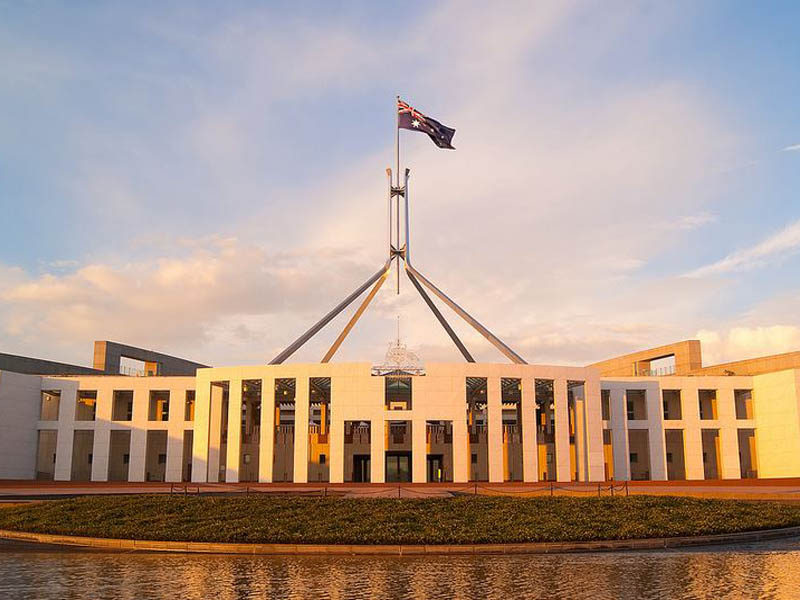The Turnbull Government has confirmed it will pursue membership of the Open Government Partnership (OGP) initiative, effectively reversing the policy of former Prime Minister Tony Abbott.
The OGP is an informal international grouping of nation’s committed to, broadly, Gov 2.0 ambitions – from the promotion of transparency, empowerment of citizens through engagement and harnessing new technologies to strengthen public sector governance.
The combination of these goals effectively bolsters anti-corruption measures and aims to drive better service delivery.

But having dusted off the plans to get serious about Open Government ideals, it risks making a mockery of its own process by running a shortened public consultation, and without seeking a broad range of non-government views about what Australia’s commitment should look like.
It has also pre-determined the area of focus for government’s first National Action Plan, circumventing any strong community views about where its initial attentions should be applied.
Joining the OGP is a great idea. It has been a great idea for all of the years it was off the agenda. But the OGP is a process, not a destination.
Now that we have a Prime Minister who is intellectually on-board with the benefits that will be derived from joining the OGP, it is surely time for an honest assessment of Australia’s current status, where there are short-comings, and where improvements could be made.
There is a credibility issue here. The Australian Government has had a tortured recent history in this area. It moved from the heady-days of signing a Declaration of Open Government (which committed to a set of ideals around access to information, citizen engagement and participatory policy-making), to a period in which engagement became lip-service, and basic access to information through programs like the Freedom of Information Act were wound-back or circumvented.
Australia went from being an international driver of open government standards, to a government that was not prepared to do the basic work around a National Action Plan that would give it entry an international partnership of countries that was championing these very ideals.
Open Government encompasses lots of different issues and you wouldn’t want to get too specific about any one thing. But a fair assessment of the health of the Open Government agenda can be fairly summed up with the fact that the Australian Government currently has no Privacy Commissioner and no Freedom of Information Commissioner.
These positions have been vacant for most of the year. Both roles have been so sidelined – and maligned – since 2010 that there is no queue of enthusiastic applicants.
Simply blowing the dust off a years-old process that had been shelved two years ago – by this government – really doesn’t buy trust or good will. We need to start again and sliding a three-week initial consultation quietly under the radar with a departmental statement really isn’t good enough.
The process behind joining the OGP is too important to rush. And it should be hoped that government will take to opportunity to consult as widely as possible across the community.
The stakes are too high, at a time when data integrity issues have become so fundamental to the running of government.
The Australian Government had committed to joining the OGP in 2013 under the previous Labor administration. By early 2014, reports had emerged the commitment to OGP membership was no longer a priority, and by 2015 the issue was off the agenda.
Mr Turnbull’s office resurrected the commitment shortly after the leadership change in September, and the Prime Minister signed-off on another crack at OGP membership in recent weeks.
The Department of Prime Minister and Cabinet announced the new policy via its website yesterday. Further details can be found at the newly-created OGPau page that has been launched on the GovSpace website.
The OGP was founded in 2011 by the governments of the US, the UK, Brazil, Mexico, Norway, the Philippines and South Africa. It has grown to 69 member countries.
The latest recommitment to the OGP will be viewed with a jaundiced eye by anyone outside of government circles. The proof will be in the action over the next six months as government consults on its National Action Plan – to be submitted to the OGP as part of Australia’s application process.
The recommitment to the OGP has slipped quietly under the radar, and there seems no genuine attempt to canvas views from the community. The breadth of the National Action Plan has already been determined, and the consultation period for the design of its framework already truncated to just three weeks.
All consultations must be made publicly through channels dictated by government, and there is no independent advisory mechanism to make sure that a cross-section of community interests are canvassed.
The Government wants its action plan submitted to the OGP Steering Committee by the middle of next year.
Do you know more? Contact James Riley via Email.

